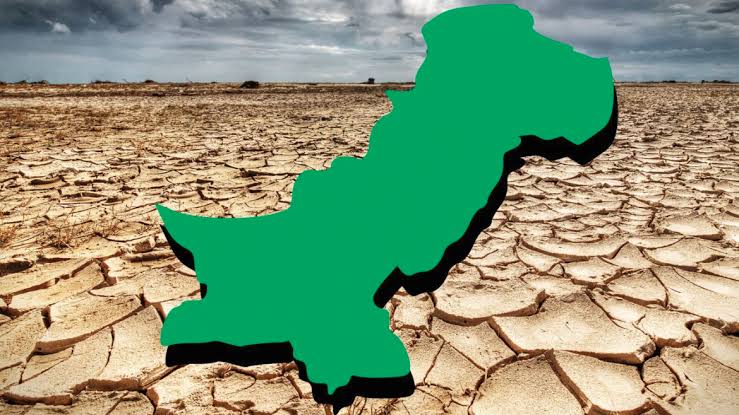Climate Change, Migration and Governance

The recent floods in Khyber Pakhtunkhwa (KP) have once again laid bare the fragile interplay between climate, people, and governance in Pakistan. Torrential rains displaced thousands, washed away homes, destroyed vital bridges and roads, and devastated agriculture—the backbone of rural economies. The human toll, with over 210 confirmed deaths in KP alone, including 184 men, 14 women, and 12 children and countless more forced into temporary shelters, mirrors the recurring pattern of climate disasters in Pakistan, where communities suffer while the state and its ruling classes offer, at best, cosmetic relief. These KP floods are not isolated; they form part of a broader, global crisis in which climate change–induced disasters disproportionately impact the Global South from Bangladesh’s river erosion displacing hundreds of thousands annually, to India’s recurring heatwaves killing thousands of workers, and to droughts across Sub-Saharan Africa forcing millions to migrate. This climate emergency exposes not only environmental fragility but also systemic governance failures rooted in capitalist structures.
The central conundrum emerging from the KP floods is not the absence of natural vulnerability, but the absence of effective governance, a deficit compounded by the collusion of Pakistan’s corporate elite and ruling classes. Rather than implementing proactive adaptation policies, disaster management has devolved into reactive crisis relief. The state offers piecemeal aid to safeguard the political order while the economic elite continue profiteering. Naomi Klein’s concept of “disaster capitalism” captures this well: crises are transformed into opportunities for elites to consolidate wealth and power. In Pakistan, reconstruction contracts, real estate speculation in resettled areas, and corporate control over relief supply chains are prime avenues through which elites benefit from disasters that devastate ordinary people.
These governance failures become more glaring when placed in the broader context of the global political economy. Pakistan’s ruling class, comprised of landed elites, industrialists, and their military-bureaucratic allies—has historically resisted redistributive policies that could empower flood-affected rural communities. Gramsci’s notion of cultural hegemony reveals how elites maintain legitimacy by presenting relief efforts as benevolence, thus obscuring their role in producing systemic vulnerability. In KP, for example, public discourse on “unprecedented rainfall” serves to conceal decades of unregulated construction along riverbanks, deforestation in watershed areas, and the absence of flood zoning, decisions shaped by elite interests and failing governance. Voices from the flood-affected communities; small farmers, daily wage laborers, women, and indigenous groups; are strikingly absent from mainstream climate discourse. These marginalized groups suffer both material losses and political exclusion, as displacement severs their access to land, livelihoods, and community networks. Migration, therefore, becomes a forced outcome rather than a choice. Reports indicate that nearly one million people displaced by the 2025 floods have relocated to the urban peripheries of Peshawar, Mardan, and Islamabad, swelling the ranks of climate migrants living in precarious conditions without access to formal housing or employment.
The governance of migration further highlights systemic flaws. Instead of integrating climate migrants, state responses often rely on securitized rhetoric that casts them as burdens or threats. Thus, migration governance mirrors climate governance: neither is oriented toward protecting vulnerable populations; both reinforce elite privileges. Across the Global South, this dynamic repeats from the Rohingya in Bangladesh to internally displaced people in post-flood India unfolding within a framework of state neglect and elite self-interest.
A. K. Hunt’s history of economic thought provides a valuable lens to interpret these intersections. The Keynesian turn of the 1930s sought to manage capitalist crises through state intervention, public works, and welfare—laying the foundation for developmental nationalism. Yet in postcolonial Pakistan, Keynesianism was selectively adopted: state planning served elite industrialists but ignored rural redistribution. Ayub Khan’s developmental nationalism prioritized mega-infrastructure and growth corridors, justifying them as modernization, but in reality exacerbating ecological vulnerabilities, now magnified by flooding.
Thus, Pakistan’s climate-governance crisis has deep intellectual
roots in a distorted adaptation of Keynesian economics, intertwined with authoritarian nationalism and elite capture.
KP’s floods also spotlight the consumption patterns shaped by corporate culture that fuel climate vulnerability: timber mafias drive deforestation, cement industries promote unregulated construction in flood-prone zones, and dependency on fossil fuel intensifies climate risk. Meanwhile, corporations engage in hollow “sustainability talk” even as their operations degrade the environment. In Pakistan, corporate philanthropy during floods often functions as a smokescreen for widespread environmental complicity.
Comparative regional examples further reinforce this narrative. In India, corporate-backed mega-projects such as hydropower dams in the Himalayas have triggered landslides and worsened floods—while benefiting economically from reconstruction contracts. In Bangladesh, adaptation funds are often captured by elites, leaving rural migrants stranded in informal urban settlements. These patterns reflect a regional convergence: climate disasters become vectors for elite accumulation, displacing millions into cycles of poverty and migration. Who benefits from climate disasters remains clear. In KP, evidence indicates that reconstruction contracts have been disproportionately awarded to companies linked with political families. Land developers have exploited displacement to acquire land cheaply near Peshawar for speculative housing. Meanwhile, small farmers in Charsadda and Nowshera lost everything without receiving compensation. The ruling class has ensured that climate disasters redistribute resources upward, from subaltern communities to corporate and political elites.
A radical rethinking of governance, economy, and human–environment relations is necessary. First, sustainable development must prioritize people over profit, with policies that empower communities through land rights, decentralized disaster management, and climate-resilient agriculture. Second, governance structures must be democratized, dismantling the nexus between the corporate elite and the state. Civil society, grassroots movements, and subaltern groups must articulate alternative visions of climate justice that challenge elite narratives.
Third, migration governance must shift from securitization to solidarity, recognizing climate migrants as citizens entitled to housing, work, and dignity. Finally, international solidarity is essential: the Global South must collectively demand climate reparations from the Global North, whose emissions have fueled the crisis. The August 2025 floods in KP are not just a natural disaster, they are a mirror reflecting the structural crises of climate change, migration, and governance in Pakistan and South Asia.
They expose the failures of ruling classes that prioritize profit over people and underscore the urgent need for a political economy of sustainability grounded in justice, dignity, and coexistence between people and planet. Unless these lessons are taken seriously, the cycle of devastation will continue, producing new waves of climate migrants, fresh profits for elites, and deeper fractures in the social fabric. The struggle, therefore, is not only against climate change, but against the governance and capitalist structures that ensure disasters become opportunities for the few, not the many.

